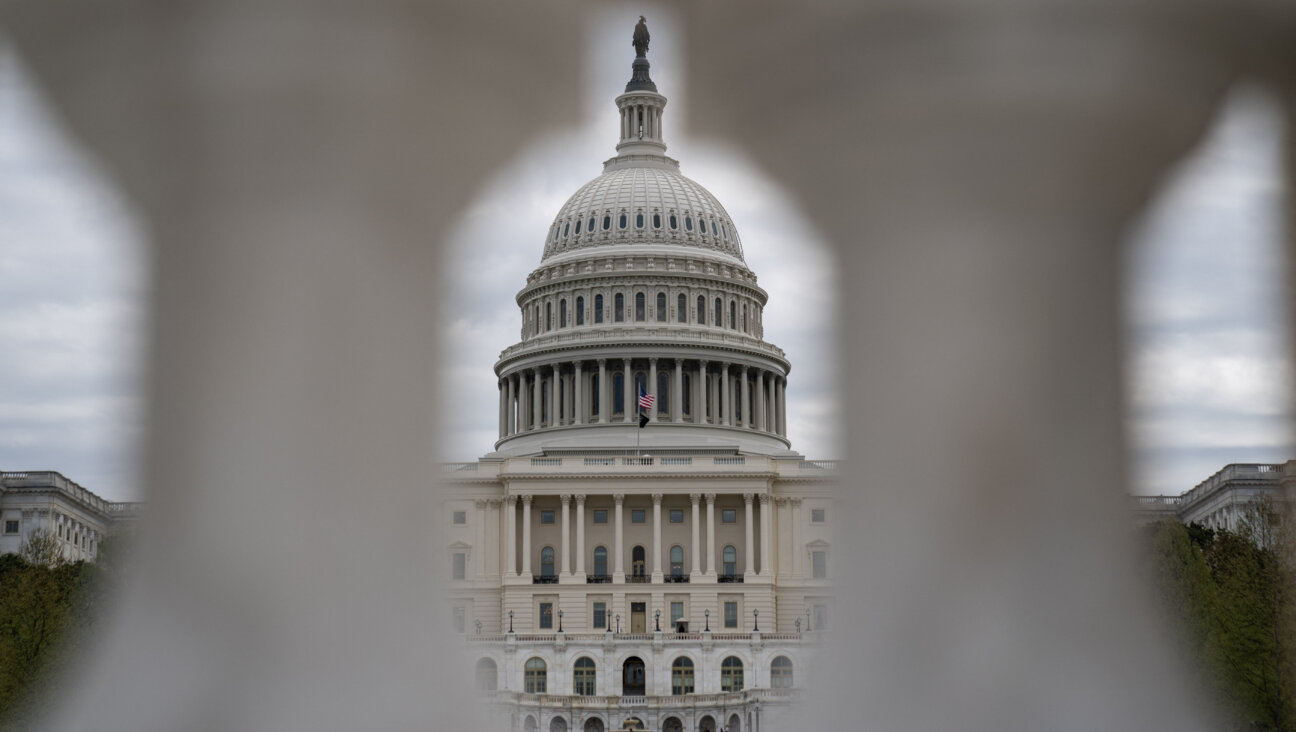IRS Rules Permit Charities To Say Little About Money Sent Overseas

Image by kurt hoffman

Image by kurt hoffman
Want to know how an American charity is spending your donated dollars overseas?
Tough luck.
That’s the effect of an Internal Revenue Service rule change that is making it increasingly difficult for donors and watchdogs to track American not-for-profit dollars after they leave the United States.
Former IRS officials have criticized the little-noticed 2008 change, which lifted the requirement that charities in the United States report to the IRS and the public the identities of overseas charities to which they have sent money.
Charities still have to tell the IRS and the public the names and amounts they donate to other American charities. When American charities send money out of the country, however, they need to say only the region of the world where they sent it and the amount they gave.
That means that an American charity such as One Israel Fund, which in 2003 reported sending tens of thousands of dollars to settlements in the West Bank, now needs only to acknowledge that it sent grants to the “Middle East” for “Security,” among other purposes, as One Israel Fund did in its 2010 disclosure.
Though the rule change isn’t new, it’s been little-noted outside of not-for-profit compliance circles. Some tax law experts contacted this March by the Forward were still unaware of the change.
“That’s just the opposite of what we were moving towards, which was more accounting responsibility,” said Sheldon Cohen, who led the IRS during the 1960s.
Marcus Owens, who led the IRS’s charities section, known as the Exempt Organizations Division, from 1990 to 2000, said that the rule change does not just leave donors in the dark. “It reduces the amount of information available to the IRS,” he said.
The loosened requirements mean less oversight of foreign grants, which are sometimes exploited by fraudsters and, in Israel, by politicians whom American donors support while taking a tax deduction at the same time.
“I’ve seen lots of organizations that… would give grants to entities that don’t appear to exist outside the country — schemes,” Owens said. “There were places in this world that sort of specialized in taking money from charities and putting it in people’s pockets.”
The change came amid a broad redesign of the Form 990, a public annual filing that is filled out by most U.S. not-for-profit organizations and gives the IRS, donors, the news media and watchdogs a means of monitoring charity activities. The redesign of the Form 990 included other tweaks that required greater transparency of not-for-profits. Not so the change to the section on foreign grantees.
“I think it’s kind of amazing,” said William Josephson, former head of the Charities Bureau in the Office of the New York State Attorney General. “Who are foreign recipients is just as important as who are domestic recipients, perhaps even more important.”
The IRS declined to comment for this story. In justifying its rule change at the time, the agency cited concerns from some not-for-profits that identifying overseas recipients of U.S. dollars in publicly available documents could pose a security risk for those groups.
The IRS’s justifications fail to explain why those security concerns apply to overseas grantees of public charities but not to overseas grantees of private foundations, another category of U.S. not-for-profits that still must report the names of their grantees.
Owens, the former IRS charity official, said that the security concern was valid in certain countries, but not across the entire world. “Once you get beyond a short list, there really aren’t a lot of issues with respect to listing grantees in Israel, for example, or France or Great Britain,” he said, listing places where many American donors direct funds. “I think it has turned into a way for charities to appear to be more transparent, but in fact be less transparent.”
But the IRS, having made the change in its 990 forms to accommodate security concerns on grants to some countries, says tax statutes require the same treatment for all countries. In 2007 the IRS said that it would change the new Form 990 to require the names of foreign grantees if at some point in the future the IRS would be able to selectively redact the form before it was publicly released. That has not yet happened.
Meanwhile, Form 990 filings have grown more opaque. In 2007, American Friends of Hebrew University reported sending $45 million to The Hebrew University of Jerusalem. In 2010, that same group reported that it had sent $34 million to the “Middle East/North Africa” for “general purposes, scholarships, research, capital projects.”
Donors are unlikely to be confused by that group. Elsewhere in their 2010 Form 990, the organization writes that its “primary exempt purpose is to support Hebrew University and other educational institutions.”
In cases of other, more controversial charities, however, journalists and other watchdogs will now find it far more difficult to track their activities.
One Israel Fund is a Long Island-based charity that provides security and social services to Jewish settlements in the West Bank. In its 2003 Form 990, One Israel Fund listed grantees like Adei Ad, a tiny West Bank outpost that the Israel Defense Forces has repeatedly attempted to dismantle. Other grantees that year included Kiryat Arba, a larger settlement near Hebron, and the settlements of Otniel and Hashmonaim.
Under the new regulatory regime, One Israel Fund’s disclosures provide far less information about which settlements it supports. In its latest available Form 990, filed in 2010, One Israel Fund reported that it sent roughly two dozen grants to the “Middle East.” Ranging from $5,000 to $130,000, the organization characterized the grants variously as supporting “humanitarian needs” and “security,” among other purposes.
One Israel Fund did not respond to a request for comment from the Forward.
It’s clear that many not-for-profits were flouting the disclosure requirement before the rules changed. Friends of the Israel Defense Forces, a New York City-based charity, stopped revealing the names of its foreign grantees as early as 2000. Today, the organization declines to make the names of those grantees public.
“Our executive committee has made that determination, and we feel that it’s the appropriate thing,” said Jonathan Bernstein, the group’s chief financial officer. “It’s a privacy protection reason. You know, it’s a combination of reasons. Security’s a part of it also.”
Friends of the IDF raised $27 million at a March fundraiser.
“It’s quite amazing how we pretend to have accountability and disclosure when in so many places, what you really would want to know — the main points — are hidden,” said Daniel Borochoff of CharityWatch, a charity monitoring group.
Other charity watchdogs were less alarmed. “They can disclose if they wish to, but are not required to,” said Bennett Weiner, chief operating officer of the BBB Wise Giving Alliance, a national charity monitor. Weiner said he backed more transparency, but that the new rules had not directly hindered his organization’s monitoring work.
“I think more disclosure is better than less,” Weiner said. “In terms of what impact it’s had, I haven’t seen that much.”
Charity Navigator, which, like the BBB Wise Giving Alliance, rates charities, said that the change had not affected its rating process. Charity Navigator’s rating system does not measure a charity’s impact, but rather its organizational efficiency. A spokeswoman, however, said that the group disagreed with the rule change in principle.
“In general we would prefer more transparency, and most donors would want to know who the grantees are,” said Sandra Miniutti, Charity Navigator’s vice president of marketing and CFO. “That’s an important thing to know if you’re supporting a charity that does work internationally.”
Contact Josh Nathan-Kazis at [email protected] or on Twitter, @joshnathankazis

I hope you appreciated this article. Before you go, I’d like to ask you to please support the Forward’s award-winning, nonprofit journalism during this critical time.
Now more than ever, American Jews need independent news they can trust, with reporting driven by truth, not ideology. We serve you, not any ideological agenda.
At a time when other newsrooms are closing or cutting back, the Forward has removed its paywall and invested additional resources to report on the ground from Israel and around the U.S. on the impact of the war, rising antisemitism and the protests on college campuses.
Readers like you make it all possible. Support our work by becoming a Forward Member and connect with our journalism and your community.
Make a gift of any size and become a Forward member today. You’ll support our mission to tell the American Jewish story fully and fairly.
— Rachel Fishman Feddersen, Publisher and CEO
Join our mission to tell the Jewish story fully and fairly.

























